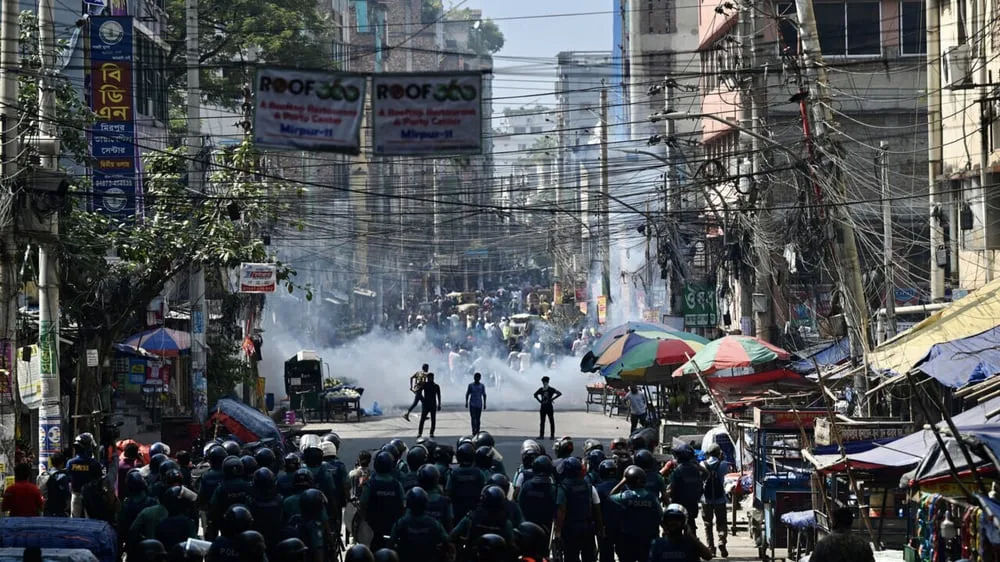In a seismic shift, Bangladesh’s garment industry, a linchpin of the nation’s economy, faces severe disruptions as workers rally for higher wages, causing production setbacks for global giants like Levi’s and H&M. The protests, marked by violence and factory closures, spotlight the hardships endured by the predominantly female workforce, earning as little as $75 per month.
Bangladesh, housing 3,500 garment factories driving 85% of the country’s $55 billion annual exports, holds a critical role in supplying leading fashion labels worldwide. The unrest has led to the closure of numerous factories, impacting brands such as Gap, Walmart, Zara, Inditex, Bestseller, Marks and Spencer, Primark, and Aldi, according to Kalpona Akter, President of the Bangladesh Garments and Industrial Workers Federation.
As clashes persist in Dhaka, where thousands demand justice, repercussions echo through the industry. Dozens of factories suffer damage, while owners preemptively close hundreds more to mitigate the risk of vandalism. The situation remains tense, with police reporting the closure of at least 300 factories during the weeklong protests, resulting in two casualties and numerous injuries.
Despite the Bangladesh Garment Manufacturers and Exporters Association proposing a 25% wage increase, workers argue this falls short of their $209 monthly demand, given the surge in living costs. The protests trigger not just a humanitarian crisis but also reveal a stark disconnect between industry titans and the workforce’s struggles.
As protests show no signs of abating, factory owners plan to reopen in key hubs, including Gazipur. However, authorities remain on high alert, deploying thousands of police and border guards to prevent violence. Urging dialogue for resolution, officials emphasize that taking the law into their own hands won’t serve the workers’ cause.
These disruptions come amid violent opposition party demonstrations seeking Prime Minister Sheikh Hasina’s resignation ahead of January elections. The turmoil poses challenges for the garment industry and the political landscape, raising questions about the sustainability and ethics of global fashion supply chains.
